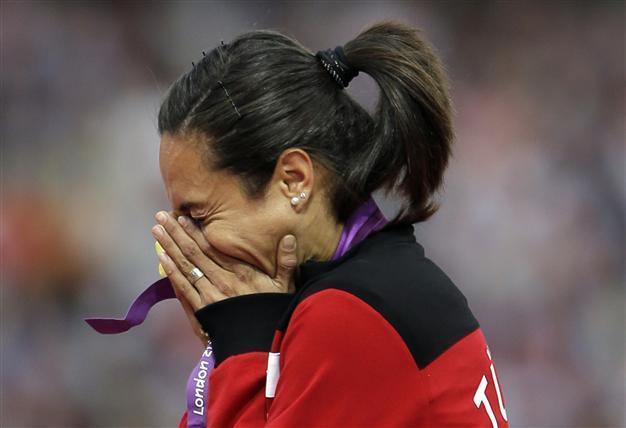Turkish runner Aslı Çakır Alptekin maintains innocence over doping
ISTANBUL

AP photo
Olympic champion Aslı Çakır Alptekin, who was stripped of her 1,500-meter title and handed an eight-year ban for blood doping on Aug. 17, has denied any wrongdoing.
“No banned substance has been found in the samples I gave during competitions, including the 2012 London Olympics, and the off season,” Alptekin said Aug. 21 in a written statement.
Alptekin slammed the blood passport system, which she said was forcing the athletes to prove their innocence years after the races.
“I want everyone to know that I am continuing to train and will fight a legal battle to be on the track as soon as possible,” Alptekin added.
Now 29, Alptekin won gold at the London Games after lowering her personal best time by almost nine seconds throughout the season.
CAS said the IAAF charge that Alptekin manipulated her blood between July 29, 2010, and Oct. 17, 2012, “is upheld by default” because of the runner’s consent.
Alptekin was investigated based on abnormal blood values in her biological passport. The IAAF appealed to sport’s highest court after the Turkish Athletics Federation cleared Alptekin in December 2013.
The agreement published by CAS notes that “she is unable to substantiate the explanations she has offered for those values, and therefore is unable to rebut the IAAF’s assertion that those values are the result of some form of blood manipulation.”
The 8-year-ban is the maximum allowed by the IAAF for a second doping offense of that type, the ruling said.
Alptekin previously served a two-year ban for a positive test for an anabolic steroid at the 2004 world junior championships.
During the case, Alptekin first argued that her blood readings were caused by “living and training at altitude, use of altitude-simulating techniques, and/or medical issues,” the CAS ruling stated.
Expert independent witnesses said her explanations were “unsubstantiated and/or scientifically unsound ... [and] do not provide a credible non-doping explanation.”
